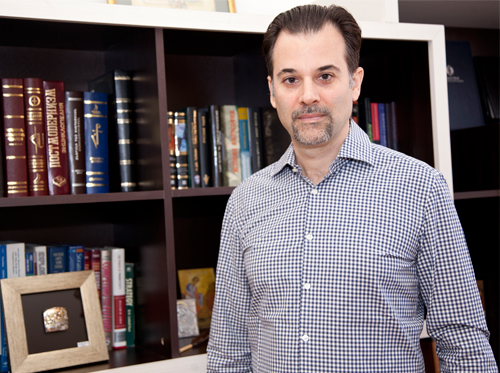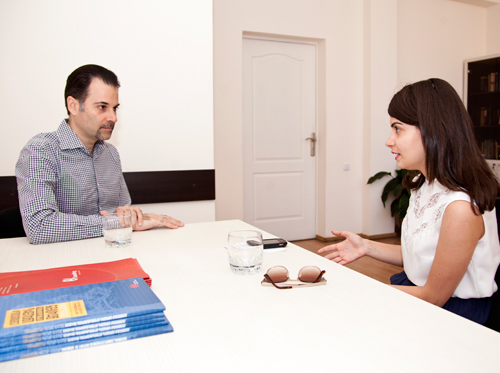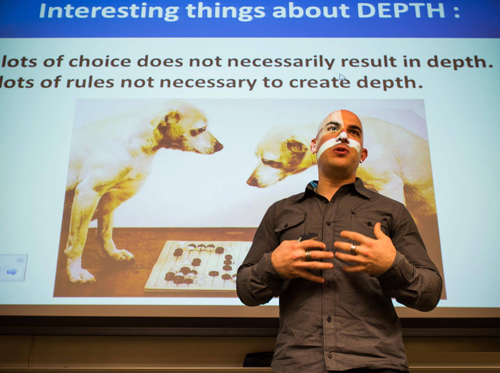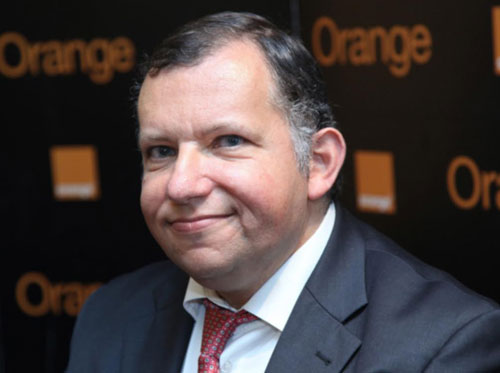-

Pierre Hennes
11:17 | 31.08.15 | Interviews | exclusive 13145
Pierre Hennes. Armenia needs more success stories
Established in 2013, Granatus Ventures is the first venture capital firm in Armenia.
Granatus provides investment, expertise and networks to startups worldwide that leverage Armenia’s potential as an emerging technology hub. The venture capital firm has offices in Yerevan, London and Singapore.
Pierre Hennes of Armenian descent is Co-Founder and Partner at Granatus Ventures. He has extensive experience in investment and new venture creation across Asia, Europe and the US, and has established and managed several VC firms and startups across multiple sectors over the past 15 years.
Itel.am spoke with Pierre Hennes who was in Armenia recently.
-Before establishing Granatus Ventures, you had founded three such venture capital firms in Singapore. What made you think there was need for such a firm in Armenia?
-I have been living in Singapore for about 15 years, and had moved there as an angel investor. Singapore is an amazing place - it is commited to developing the local startup eco-system, and has invested more than USD 10 billion in research, innovation and enterprise development schemes over the past 15 years.
My partners and I saw this as a great opportunity to formalize and scale our investment activities, and so we decided to raise formal VC funds targeting investments in Singapore & Asian startups. One of our VC funds was established with a significant investment from the Singapore Government.
Armenia also has great potential for innovation and enterprise, and with the support of the World Bank the Government has started a comprehensive program to develop the local ecosystem. Israel and Singapore have already successfully implemented similar programs. For example, the concept of matching grants, has also been adopted in Armenia through the Enterprise Incubator Foundation (EIF).
We decided to take a bigger step. That’s when my partners and I saw the need and the opportunity to establish the first VC fund in Armenia to invest in local startups.
-Granatus was launched in October 2013. What strides have you made so far?
-VC funds typically go through three development phases. The first phase focuses on fund formation and fundraising, which lasts around two years. Once the fund is formally launched, the investment period begins. During this period, which typically lasts four years, the management team is focused on building the investment portfolio by investing in promising companies as per the fund’s mandate. The final phase, or the “harvest period”, lasts four to six years, and is the phase that focuses on building value across the portfolio and exiting investments through acquisitions or IPOs. 
Photo: Mediamax
Granatus is currently in the investment period, and has invested in eight startups․ Those either locally registered companies, or companies having core value add activities in Armenia. More than 50 high quality engineers are employed in Armenia across all companies in our portfolio. Some of our companies are already in the process of completing second round financing. By the way, some of them attracted capital from well know investors and funds in Silicon Valley.
Over the next 18 months, we are targeting to expand our portfolio to up to 12 companies, and expect these 12 companies to employ over 200 people over the next 3 years.
-Which startup features matter for potential investors?
-At Granatus, we evaluate several key factors when making an investment decision. The most critical factors relate to the product, the market and the team. For the product, we evaluate how innovative it is and whether there are sufficient barriers to entry in the form of trade secrets, domain expertise, IP, investment, etc. As for the target market, it is critical that the market is large, scalable and can be served profitably. We also evaluate whether the company has an opportunity to open an entirely new market by offering solutions that significantly enhance current customer experience.
Finally, we look very closely at the team – their maturity, experience, commitment and drive. We like teams with two to three founders with complimentary skill sets who have had previous experience working together in the relevant sectors.
-Which are the strong and weak aspects of Armenian startups?
-The Armenian IT sector over the past 15-20 years has been focused primarily on outsourcing. The sector currently employs about 10,000 people across 400 companies and represents roughly 4% of GDP. There are a number of players who have gained significant value and experience in the sector, and who are now seeking ways to move up the value chain. Several companies are increasingly focused on innovation and new product development. With access to capital through funds such as Granatus, these companies are now better equipped to take the risk of changing their business models.
Though capital and qualified talent may be available to help mitigate the risk, other challenges remain. First is direct contact with the customer; it’s important to understand your customer’s needs in order to develop relevant products and services. The second is the ability to scale the business and enter foreign markets. These are among the key areas where Granatus adds value to its portfolio. Not only do we provide investment, but also our team works closely with our portfolio companies to accelerate growth and market leadership. Our portfolio companies also have exclusive access to a global network of experienced advisors and mentors who serve as a source of strategic direction and new market development.
-Which markets would you recommend startups considering?
- The local Armenian market is small and so we encourage our startups to think globally from the outset. The overall size of the market, the availability of customers and the ability to serve those customers profitably are some of the key factors in determining which markets a company should target.
For example, some of our companies, like ggTaxi have offerings that are more suitable to local or regional markets due to the local nature of the services provided. Other companies, such as CodeFights and Sololearn, offer globally relevant digital learning solutions, and are accessible to a wide audience of users, irrespective of geography.
Granatus is a global venture capital firm. We have offices in Singapore, London and Yerevan and a global advisory network that stretches from Australia to San Francisco. We know the challenge entrepreneurs face when targeting foreign markets on their own, and we make these valuable resources available to our companies to help execute and accelerate their market entry strategies.
-Which are the current trends of the eco-system of Armenia-based startups?
-Establishing a robust and deep startup eco-system is a long-standing process that requires commitment and involvement from a multitude of stakeholders including government, the private sector and education. Silicon Valley took over 50 years to become what it is today, and Singapore has to date invested just over 15 years in building its ecosystem; each are driven by a unique set of characteristics that have resulted in their success. Similarly, it is important for our key stakeholders to work collectively to identify where Armenia can excel and provide a competitive advantage over other ecosystems, and to direct the necessary resources to the right initiatives that accelerate growth and development.
Armenia now competes globally with other ecosystems and must focus on providing best-in-breed talent, infrastructure and services to startups and entrepreneurs. For example, while Armenia’s talent pool is strong, it is limited in scale. Initiatives such as AYB, TUMO and UWC are great examples of preparing the next generation of entrepreneurs with the necessary skill sets to perform in the digital economy. We also need to improve our basic infrastructure in terms of communication and transportation, and develop financial and legal frameworks that ensure investor confidence.
Young entrepreneurs also need more local role models. There is a limited pool of successful local Armenian IT entrepreneurs, and more needs to be done to encourage them to invest time and resources across a variety of initiatives that add value to the local ecosystem. This includes greater engagement with successful diaspora Armenians. There are also successful individuals not necessarily from the IT sector, which should be tapped for investment and expertise.
With continued engagement and investment in the right initiatives, and a strong commitment from the Government to build out the infrastructure, Armenia has a real chance to create a vibrant ecosystem and grow the number of startups from 200 to over 1,000 over the coming decade. And the more success stories we can demonstrate, the more others will be encouraged to invest and participate in our ecosystem.
Narine Daneghyan talked to Pierre Hennes

17:29 | 24.09.25 | Articles
Jacopo Losso on Cross-Border Investments and Why Armenia Attracts Angels








